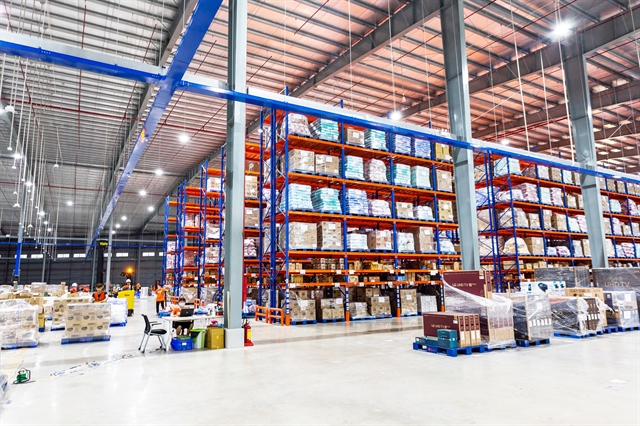Flexible warehousing models that can help businesses optimise their storage are required amid the development of e-commerce, experts have suggested.

Flexible warehousing models that can help businesses optimise their storage are required amid the development of e-commerce, experts have suggested.
"AirBnB for logistics" is an ideal solution, real-estate service firm, Jones Lang LaSalle (JLL), said, explaining that it is a shared economic model that allows businesses to optimise storage space that is not in use during the low season.
It cited the examples of a company selling Christmas trees that only needs space in winter and a pool accessories maker that needs it in summer.
“The growth of e-commerce has driven demand for industrial real estate in the last 10 years, and the sudden spike in online activity since the crisis has accelerated that demand,” Trang Bui, senior director of markets, JLL Vietnam, said.
In 2020, the COVID-19 pandemic has caused the sudden increase of e-commerce adoption, particularly for food, fast-moving consumer goods, health and pharmaceutical products.
The trend is happening globally, especially in the Asia Pacific, America and Europe.
Viet Nam has a young and tech-savvy population to support the rise of e-commerce, which is expected to carry the industrial property industry through the current uncertain time.
During the social-distancing period, almost every industry was affected, and the mobility restriction gave e-commerce more customers, meaning the pandemic’s effect on it was less severe than some other industries like tourism and traditional commerce.
A JLL report said the sudden increase in demand is forcing producers of staple goods to scramble for additional warehouse capacity and companies to rethink supply chains.
“This shift in customer behaviour has increased both short- and long-term demand for industrial real estate properties that allow companies to deliver orders faster by being closer to their customer base,” Bui said.
According to JLL, the surges in online demand for goods during the pandemic highlight the need to rethink aspects of supply chain management. The skyrocketing order volume has forced e-commerce companies to keep more stocks in locations near customers, fuelling demand for flexible warehouses.
It said it has been receiving requests from major e-commerce customers to rent warehouses of 10-15ha near the city centre, as demand increases strongly during the year-end shopping season.
To mitigate the risk of disruption, many occupiers will seek to invest in distribution centres closer to parcel hubs to ensure there is minimal disruption the next time a major global catastrophe happens.
Increasing transportation options, including inter-modal rail, so that that there is less reliance on trucks, and more automated facilities, can also reduce the impact during major events.
Giant e-commerce platform Shopee told Viet Nam News the company has set up a third fulfilment warehouse at Tan Phu Trung Industrial Park in HCM City’s Cu Chi District, its largest. The others are in the city’s District 7 and Long Bien District, Ha Noi.
Shopee picked a strategic location for the new warehouse that enables Shopee Express service and the company’s other shipping partners to operate more efficiently. The location is also convenient for delivery to central provinces and the Mekong Delta.
Shopee said it could now completely meet the growing demand in the vicinity of HCMC and in the central provinces.
Tuan Anh, managing director of Shopee Vietnam, said e-commerce has a lot of potential in Viet Nam, making industrial real estate the “darling” of the commercial real estate industry. — VNS





